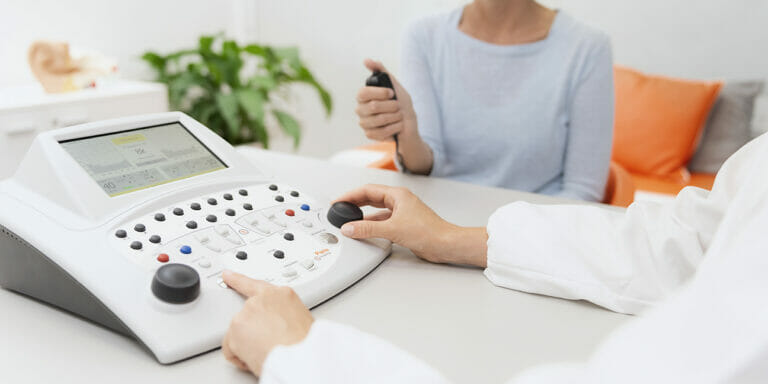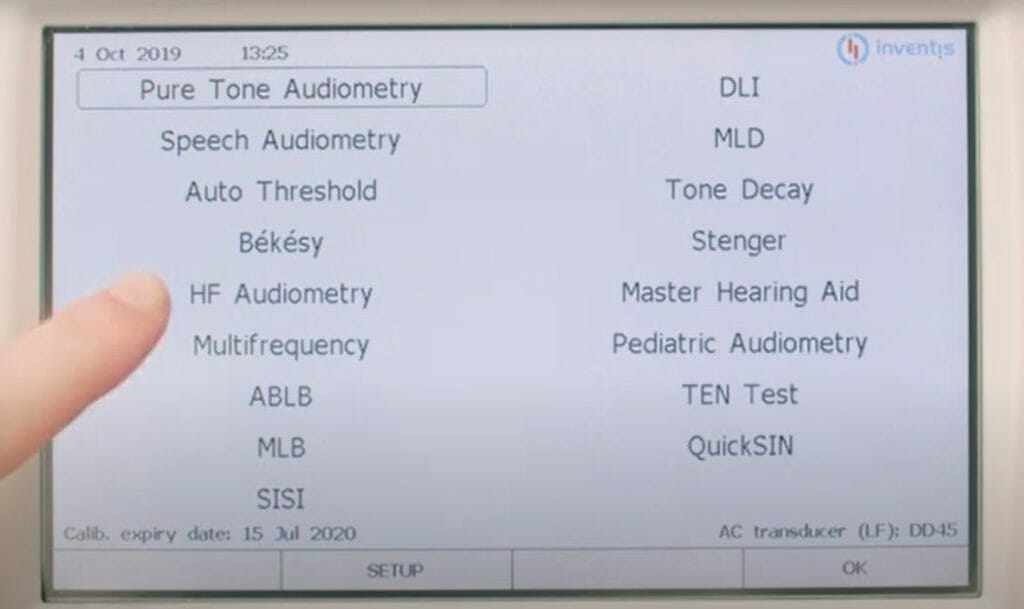Auditory Steady State Response (ASSR)
Introduction
Understanding Auditory Steady State Response (ASSR)
Auditory Steady State Response (ASSR) is an objective measure of hearing function, which means that it does not rely on the patient’s subjective feedback. ASSR measures the brain’s electrical activity in response to auditory stimuli, which are typically delivered through earphones or speakers.
Here are some key things to know about ASSR:

ASSR provides an accurate assessment of hearing function in individuals, even those who may have difficulty responding to traditional hearing tests.
ASSR can be used to measure hearing across a wide range of frequencies, including those that are difficult to measure using other methods.
ASSR is a non-invasive test that is safe and painless.
How Does ASSR Work?

When sound waves enter the ear, they cause the eardrum to vibrate. This vibration is transmitted through the middle ear and eventually reaches the cochlea, which is a small, spiral-shaped structure in the inner ear. The cochlea contains tiny hair cells that are responsible for converting the sound waves into electrical signals that can be sent to the brain.
ASSR works by measuring the brain’s electrical activity in response to
auditory stimuli. The test typically involves playing a series of tones or clicking sounds through earphones or speakers while electrodes are placed on the patient’s scalp to measure the brain’s response.
The tones or clicks are delivered at specific frequencies and amplitudes, and the electrodes measure the brain’s response at the same frequencies. The results are recorded and used to evaluate the patient’s hearing function
Benefits of ASSR
There are several benefits to using ASSR as an assessment tool for hearing function. Some of the key benefits include:
Objective Assessment: Unlike traditional hearing tests, which rely on the patient's subjective feedback, ASSR provides an objective measure of hearing function. This means that it can be used to accurately assess hearing in individuals who may have difficulty responding to traditional tests.
Wide Range of Frequencies: ASSR can be used to measure hearing across a wide range of frequencies, including those that are difficult to measure using other methods.
Safe and Painless: ASSR is a non-invasive test that is safe and painless. There are no needles or other invasive procedures involved, and the test does not cause any discomfort or pain.
Early Detection: ASSR can be used to detect hearing loss at an early stage, which can help to prevent further damage to the hearing system.
Individualized Treatment: The results of an ASSR test can be used to develop an individualized treatment plan for the patient, which may include hearing aids or other devices.
How is ASSR Administered?
ASSR testing is typically administered by an audiologist or other trained healthcare professional. During the test, the patient will be asked to sit comfortably in a quiet room or sound booth. Electrodes will be placed on the patient’s scalp and earphones or speakers will be used to deliver the auditory stimuli.
The test typically takes between 30 minutes to an hour to complete, depending on the specific protocols used by the healthcare professional.

FAQs about ASSR
A: ASSR testing is highly accurate and provides an objective measure of hearing function. The accuracy of the test depends on the skill and experience of the healthcare professional administering the test.
No, ASSR testing is non-invasive and painless. The patient may feel a slight discomfort or pressure when the electrodes are placed on the scalp, but this should not cause any pain.
A: ASSR testing can benefit individuals of all ages, including newborns, children, and adults. It is especially useful for individuals who may have difficulty responding to traditional hearing tests.
A: No, there are no risks associated with ASSR testing. The test is non-invasive and does not involve any needles or other invasive procedures.
A: An ASSR test typically takes between 30 minutes to an hour to complete, depending on the specific protocols used by the healthcare professional.
A: In most cases, ASSR testing is covered by insurance. However, it is important to check with your insurance provider to determine your specific coverage.
